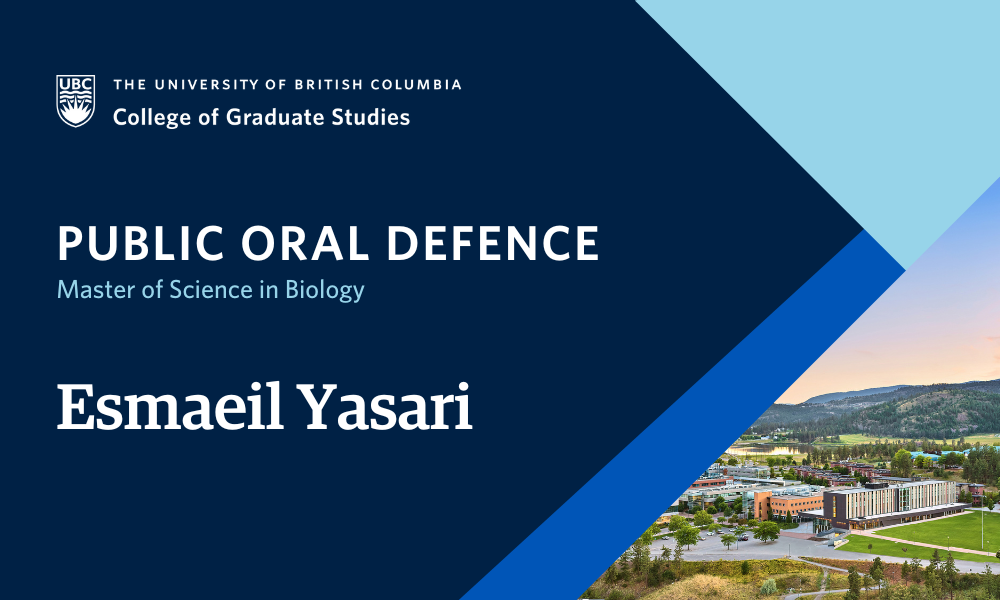
- This event has passed.
Thesis Defence: The Effects of Vermicompost, Vermicompost Tea, and Seaweed Extract on Grapevine and Soil Parameters of Vineyards in British Columbia and Nova Scotia, Canada
December 2, 2024 at 8:00 am - 12:00 pm

Esmaeil Yasari, supervised by Dr. Melanie Jones, will defend their thesis titled “The Effects of Vermicompost, Vermicompost Tea, and Seaweed Extract on Grapevine and Soil Parameters of Vineyards in British Columbia and Nova Scotia, Canada” in partial fulfillment of the requirements for the degree of Master of Science in Biology.
An abstract for Esmaeil Yasari’s thesis is included below.
Defences are open to all members of the campus community as well as the general public. Registration is not required for in person defences.
ABSTRACT
Organic-based material, including vermicompost and seaweed extract, can promote sustainable viticulture by enhancing productivity and minimizing environmental impact. In Okanagan Valley vineyards, studies conducted between 2020 and 2021 evaluated the effects of vermicompost, vermicompost tea, and seaweed extract on grapevine growth and productivity. Vermicompost applied to 10-year-old Chardonnay on SO4 rootstock vines at Thomas Ranch Vineyards did not significantly affect most growth parameters or yield, except for pruning weight in 2020 and yield in 2021. Medium and high rates maintained comparable yields to grower practice controls. Vermicompost notably increased soil organic C and total N, with a recommended application rate of 14 tonnes ha-1 for cost-effectiveness. Vermicompost tea was tested on 34-year-old self-rooted Chardonnay Musqué vines at Blasted Church Vineyards. Application had minimal impact on growth and yield. Higher concentration and more frequent application occasionally improved berry weight and total soluble solids (TSS), but overall effects were inconsistent, suggesting that vermicompost tea’s benefits depend on precise dosage and timing. Seaweed extract applied to Chardonnay vines in British Columbia and Nova Scotia had limited effects on growth, fruit quality, and soil nutrients. It enhanced cluster looseness, however, and at high rate, reduced clusters per vine and yield. Lower rates and less frequent applications were more beneficial, indicating that moderate use is optimal for grapevine growth and yield. Overall, the studies suggested that while organic-based products like vermicompost and seaweed extract can maintain or enhance soil productivity and grape yield, their efficacy depends on appropriate application rates and frequencies.